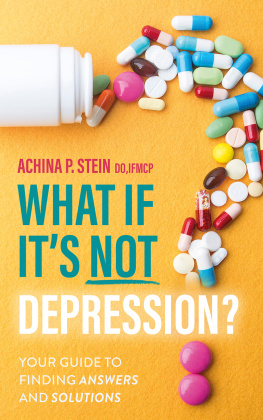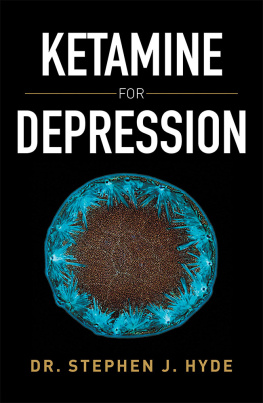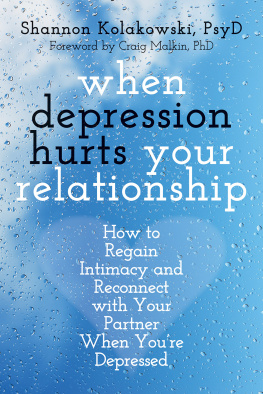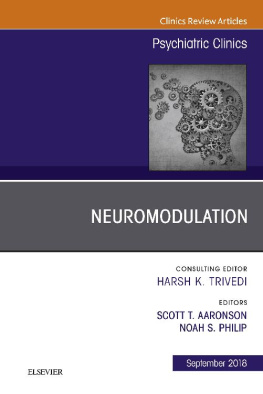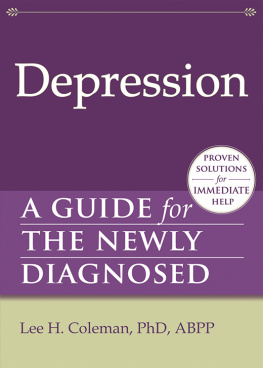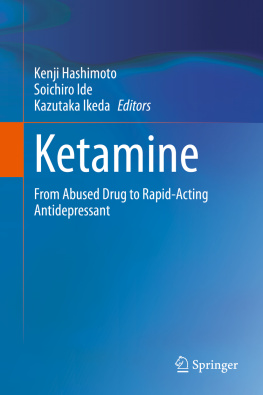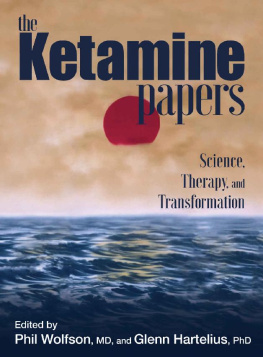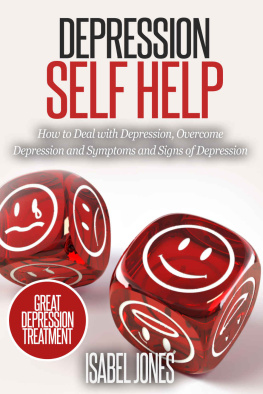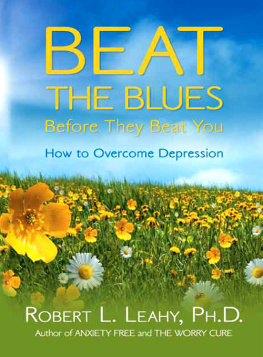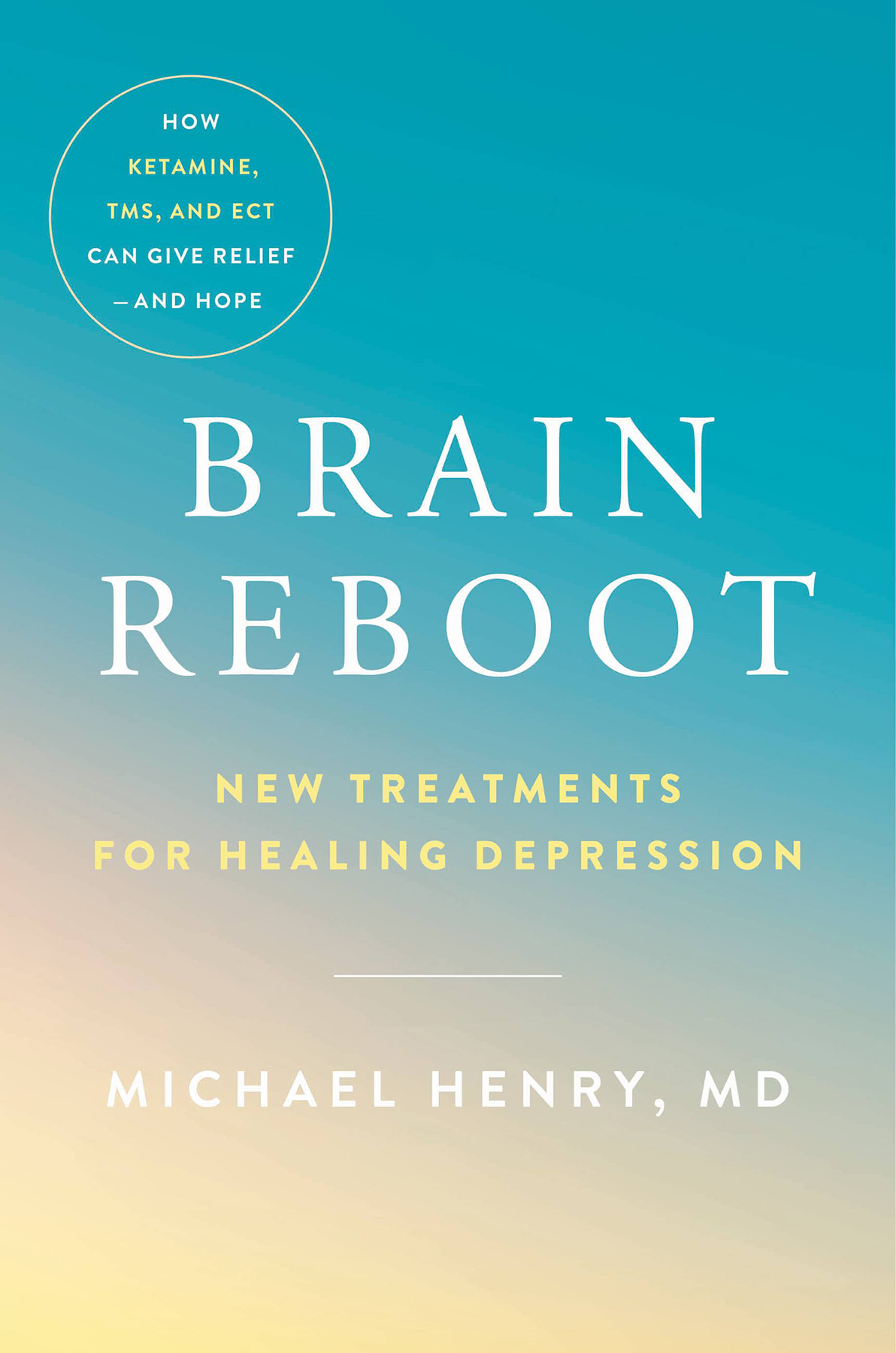
Note: The information in this book is true and complete to the best of our knowledge. This book is intended only as an informative guide for those wishing to know more about health issues. In no way is this book intended to replace, countermand, or conflict with the advice given to you by your own physician. The ultimate decision concerning care should be made between you and your doctor. We strongly recommend you follow their advice. Information in this book is general and is offered with no guarantees on the part of the author or Hachette Go. The author and publisher disclaim all liability in connection with the use of this book. Names and identifying details have been changed, and most examples are composites.
Copyright 2022 by Michael E. Henry, MD
Cover design by Terri Sirma
Cover image MarySan/Shutterstock
Cover copyright 2022 by Hachette Book Group, Inc.
Hachette Book Group supports the right to free expression and the value of copyright. The purpose of copyright is to encourage writers and artists to produce the creative works that enrich our culture.
The scanning, uploading, and distribution of this book without permission is a theft of the authors intellectual property. If you would like permission to use material from the book (other than for review purposes), please contact permissions@hbgusa.com. Thank you for your support of the authors rights.
Hachette Go, an imprint of Hachette Books
Hachette Book Group
1290 Avenue of the Americas
New York, NY 10104
HachetteGo.com
Facebook.com/HachetteGo
Instagram.com/HachetteGo
First Edition: November 2022
Hachette Books is a division of Hachette Book Group, Inc.
The Hachette Go and Hachette Books name and logos are trademarks of Hachette Book Group, Inc.
The publisher is not responsible for websites (or their content) that are not owned by the publisher.
Library of Congress Cataloging-in-Publication Data has been applied for.
ISBNs: 978-0-306-92517-7 (hardcover); 978-0-306-92518-4 (ebook)
E3-20220929-JV-NF-ORI
Introduction:
Dont Give Up Hope!
M any people find themselves feeling engulfed by despair and hopelessness, which is, basically, the definition of depression. Whatever brought you to this book, whether it is you or someone close to you who is suffering from depression, know that here you will find its opposite: hope. Even if you have tried medications and therapy and they havent workedmeaning you have what professionals have deemed treatment-resistant depressionyou might not have heard about some of the options youll learn about here. Whats more, myths about these treatments may have caused you or the professionals helping you to overlook them. Much in the field of depression treatment has changed in recent years, and interventions you have not considered might turn out to be key to regaining your mental health and well-being.
Brain Reboot offers practical insight into the treatments that are available when the medications, psychotherapy, and faith-based approaches you may have already tried didnt bring the needed relief from the symptoms of depression. In addition to providing the science underlying each treatment, we will discuss the nuts and bolts of deciding whether they are for you and how to access them if you decide to proceed with them. You will learn about what to look for when seeking out a clinic or individual provider. Also, we will discuss the medical conditions that need to be considered and managed prior to and during the treatment, as well as the common side effects people experience with each of the treatments. In the closing chapters of the book, I will provide you with a brief overview of the new technologies that are being deployed in depression, such as genomics, as well as a quick look at other novel treatments in the development pipeline.
Brain Reboot started out as a way to reassure people suffering from severe depression and who had been referred for electroconvulsive therapy (ECT) that old-fashioned shock therapy had been modernized and is safe and highly effective. It is a treatment I have successfully used to help thousands of patients. This large number, in part, reflects the fact that for most of my professional career as a psychiatrist, I have been the director of busy ECT services, first at McLean Hospital and now at Massachusetts General Hospital, where I am also the medical director of the Dauten Family Center for Bipolar Treatment Innovation. However, given the recent advancements in the treatment of refractory or intractable depression (treatment-resistant depression) and other mood disorders, it would be very biased to talk only about ECT. For those with severe mood disorders that do not respond to first-line treatments, two additional powerful interventions are now available: transcranial magnetic stimulation (TMS, also known as rTMS when it is used repetitively) and ketamine. I was first exposed to TMS during my fellowship training at the National Institutes of Mental Health, where my time overlapped with that of Dr. Mark George, one of the leaders behind the development of TMS as a clinical treatment. Over the years, I have had additional training in TMS and have recommended it to my medication patients. Similarly, my experience with ketamine is based on my attempts to use it to bolster the effectiveness of ECT as well as my recommendation of it to my medication refractory depressed patients. In this book, you will learn about these as well as some exciting new potential interventions that show great promise for all sufferers of depression and gain an understanding of these treatments that will help you decide which, if any, would be most appropriate for you.
You will also find a chapter on treatments for the metabolic effects of depression because depression is often associated with deconditioning and weight gain, which can cause long-term negative effects on your health. Recent research has shown that exercise, diet, and improved sleep can have antidepressant effects.
Most chapters are centered on a clinical case that is typical for that particular treatment and feature a discussion of the science. The purpose of using this format is twofold. First, I wanted to let readers suffering from severe mood disorders know they are not alone, and second, I wanted to make the information more relatable to their individual journey. I disguised patients identifying details, and most examples are composites. By way of example, let us start with Margies struggle with depression.
Margie is a forty-six-year-old mother of two daughters who came to our clinic as a last resort. Her nurse practitioner, Paula, had referred her because she had tried everything and didnt know what else to do. After a brief examination, it was clear that Margie had progressed from feeling blue all the time, dragging herself around, to feeling sheer dread at having to face each day. She was in the depths of what Winston Churchill, a fellow sufferer, called the black dog. It was as if a creeping black veil had been hung over the worldand especially over her.
There were days when she could barely get out of bed. The pain of the depression grew ferocious, sometimes crippling her so badly that she had to stop what she was doing and try to breathe. Her husband and her daughters suggested that she get help, but she thought she could beat it by herself. That didnt work.
Paula had tried everything to help her patient, but after months of trying different combinations of medications and different forms of therapy, Margie was only slightly better. Not only did she continue to feel flat, but in her worst moments, she had thoughts of ending her life. She assured Paula that these were just silly thoughts and she didnt intend to actually end her life, but Paula understood that Margie was telling her just how bad it really was: she was still in the depths. During the day she felt like she was wearing lead shoes. Finally, Paula referred Margie to a psychiatrist. The psychiatrist felt that Margies depression was too deep for TMS, and Margies family history of addiction made her reluctant to try ketamine. So the psychiatrist recommended a trial of ECTelectroconvulsive therapy.



